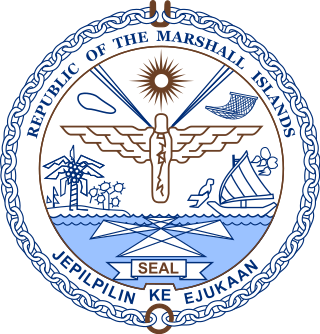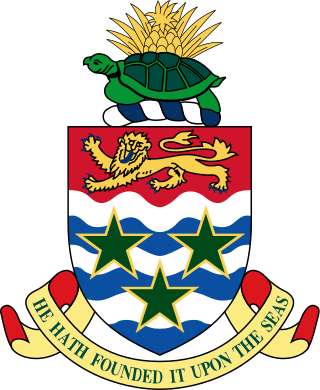The parliaments of the Australian states and territories are legislative bodies within the federal framework of the Commonwealth of Australia.
An electoraldistrict, sometimes called a constituency, riding, or ward, is a subdivision of a larger state created to provide its population with representation in the larger state's legislature. That body, or the state's constitution or a body established for that purpose, determines each district's boundaries and whether each will be represented by a single member or multiple members. Generally, only voters (constituents) who reside within the district are permitted to vote in an election held there. District representatives may be elected by a first-past-the-post system, a proportional representative system, or another voting method. They may be selected by a direct election under universal suffrage, an indirect election, or another form of suffrage.
Canada holds elections for legislatures or governments in several jurisdictions: for the federal (national) government, provincial and territorial governments, and municipal governments. Elections are also held for self-governing First Nations and for many other public and private organizations including corporations and trade unions. Municipal elections can also be held for both upper-tier and lower-tier governments.

Elections in Mexico are held every 6 years to elect a president and every 3 years to elect a legislature. These elections determine who, on the national level, takes the position of the head of state – the president – as well as the legislature.

In the politics of the United States, elections are held for government officials at the federal, state, and local levels. At the federal level, the nation's head of state, the president, is elected indirectly by the people of each state, through an Electoral College. Today, these electors almost always vote with the popular vote of their state. All members of the federal legislature, the Congress, are directly elected by the people of each state. There are many elected offices at state level, each state having at least an elective governor and legislature. There are also elected offices at the local level, in counties, cities, towns, townships, boroughs, and villages; as well as for special districts and school districts which may transcend county and municipal boundaries.

The American Samoan Legislature or Fono has two chambers, the House of Representatives and the Senate, which has a directly elected head of government, the Governor of American Samoa.

Elections in Bermuda have been taking place since 1620. Bermuda's current electoral system, with a lower house elected by all Bermudian status-holders, each casting a single vote, voting in single-member districts on the first-past-the-post method, came into effect with the 1968 constitution.

The Republic of the Congo elects on the national level a head of state – the president – and a legislature. The president is elected by the people. The Parliament (Parlement) has two chambers. The National Assembly has 153 members, for a five-year term in single-seat constituencies. The Senate (Sénat) has 66 members, elected for a six-year term by district, local and regional councils. The Republic of Congo is a one party dominant state with the Congolese Labour Party in power. Opposition parties are allowed, but are widely considered to have no real chance of gaining power.
Guam elects on the territorial level a governor and a legislature with the governor elected for a four-year term by the people. The Legislature of Guam has fifteen members elected at large in an open primary for two year terms.

Elections in Kiribati are held every 4 years or, earlier, after a no confidence vote. They consist in the national elections of the Maneaba ni Maungatabu from whom is then elected the Beretitenti, shortly after, by the people. They are also local elections of the Councils.

Madagascar elects on the national level a head of state – the president – and a legislature. The president is elected for a five-year term by the people, by absolute majority through a two-round system. The Parliament has two chambers. The National Assembly has 151 members, elected for a five-year term in single-member and two-member constituencies. In single-member constituencies, representatives are elected by simple majority, in the two-member constituencies, closed party lists are used, with the two seats distributed using a highest averages method. The Senate (Sénat) has 33 members, 22 members elected by the regions by provincial electors, and 11 members appointed by the president, all for 5 year terms.

Marshall Islands elects on the national level a head of state – the president – and a legislature. The president is elected for a four-year term by the parliament. The Legislature (Nitijela) has 33 members, elected for a four-year term in single-seat and five multi-seat constituencies. The legislature was last elected in 2023 without the participation of parties, though part of the members could be members of the United Democratic Party. The Marshall Islands is a state in which political parties have not been active.

Elections in Puerto Rico are guaranteed by Article Six of the Constitution of Puerto Rico and the Electoral Code of Puerto Rico for the 21st Century Act. All processes are overseen and managed in whole by the Puerto Rico State Elections Commission; an autonomous agency of the executive branch of the government of Puerto Rico.

The 2005 Northern Mariana Islands general election was held on Saturday, 5 November 2005. Voters in the Northern Mariana Islands voted for the Governor of the Northern Mariana Islands, the non-voting delegate to the United States House of Representatives, attorney general, 6 seats in the Northern Mariana Islands Senate, all eighteen seats in the Northern Mariana Islands House of Representatives, 3 mayors, seats for the municipal council, seats for the board of education, 2 justices, and a judges. There was also a referendum on calling a Constitutional Convention, which was approved by voters.

The Parliament of the Cayman Islands is the unicameral legislature of the British Overseas Territory of the Cayman Islands. It is composed of 21 members; 19 elected members for a four-year term and two members ex officio.

The Northern Mariana Islands Senate is the upper house of the Northern Mariana Islands Commonwealth Legislature. The Senate consists of nine senators representing three senatorial districts, each a multi-member constituency with three senators.

The Province of Manitoba, similar to other Canadian provinces and territories, is governed through a Westminster-based parliamentary system. The Manitoba government's authority to conduct provincial affairs is derived from the Constitution of Canada, which divides legislative powers among the federal parliament and the provincial legislatures. Manitoba operates through three branches of government: the executive, the legislative, and the judicial. The executive branch—the Government of Manitoba—consists of the Executive Council and the Premier, who is the head of government and the President of the Executive Council. The legislative branch—the Manitoba Legislature—is composed of the Lieutenant Governor and the Legislative Assembly, which is composed of the 57 members (MLAs) elected to represent the people of Manitoba, as well as the Speaker, the Clerk, the Officers of the Legislative Assembly, and the employees of the legislative service.
A term of office, electoral term, or parliamentary term is the length of time a person serves in a particular elected office. In many jurisdictions there is a defined limit on how long terms of office may be before the officeholder must be subject to re-election. Some jurisdictions exercise term limits, setting a maximum number of terms an individual may hold in a particular office.

The government of the Marshall Islands operates under a mixed parliamentary-presidential system as set forth in its Constitution. Elections are held every four years in universal suffrage, with each of the 24 constituencies electing one or more representatives (senators) to the lower house of RMI's unicameral legislature, the Nitijela. The President, who is head of state as well as head of government, is elected by the 33 senators of the Nitijela. Four of the five Marshallese presidents who have been elected since the Constitution was adopted in 1979 have been traditional paramount chiefs.

The 2014 Northern Mariana Islands general election were held on Tuesday, 4 November, 2014. The election coincided with the 2014 United States midterm elections. Voters in the Northern Mariana Islands voted for the governor of the Northern Mariana Islands, the non-voting delegate to the United States House of Representatives, attorney general, 6 seats in the Northern Mariana Islands Senate, all twenty seats in the Northern Mariana Islands House of Representatives, 4 mayors, seats for the municipal council, and seats for the board of education. Additionally, a referendum involving changes to the constitution was held.














